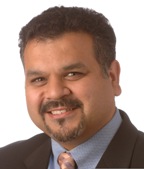Peace and conflict resolution in Islam |
NGOs such as the Acholi Religious Leaders’ Peace Initiative in Uganda, the Inter-Faith Mediation Centre in Nigeria, the Jordanian Interfaith Coexistence Research Center, and the Inter-Religious Council of Sierra Leone work with religious leaders to change negative attitudes, modify behavior, and eliminate deep-rooted stereotypes of the other. For all the importance of their work, however, these organizations are struggling financially and need to be supported, encouraged to expand their base, and, if possible, integrated into the wider field of peacebuilding activities in their respective societies. The Edhi Foundation, the Wahid Institute, the Asian Muslim Action Network (AMAN), and the Arab Group for Christian-Muslim Dialogue also would benefit immensely from being involved in an international network of peacebuilding organizations. These and many more need to be supported and trained, and their work expanded in the areas of conflict prevention; mediation; violence reduction; and providing emotional, psychological, and spiritual support to victims of war.
Enhancing these organizations needs to be coordinated with local governments to effectively change domestic policies that are harmful and overbearing on NGOs and to support structural changes, such as instituting peace modules in school curricula.
Self-critical problem-solving skills
Islamic peacemaking efforts need to recenter attention on providing real problem-solving skills to religious leaders and constituents, who can analyze their problems, identify reasons for violent conflicts, formulate solutions to complex problems, and use practical mediation skills to facilitate change in their communities. Practitioners need to devise a comprehensive understanding of the context in which they implement programs; an only partial analysis - or an only intuitive understanding of the situation - could lead to negative consequences or costly mistakes.
Islamic peacemakers need to ask crucial and fundamental questions to examine what a conflict is about; what needs to be done to prevent further harm; and what local, regional, and international forces are involved. The answers to these questions will assist practitioners in using peacemaking tools, frameworks, and models in their specific contexts. Since Islamic peacemakers are usually unfamiliar with the analytical tools for conflict prevention, mediation, transformation, and peacemaking, it is good to distinguish between program effectiveness and the effectiveness of peacebuilding. Meeting specific program goals is important, but it should be linked to the bigger picture and its ultimate effect on society. Goals must be outlined with criteria to ensure that specific ends are linked to the large and long-term goal of peacebuilding. Peacemakers must measure their effect on their communities in order for them to quantify, or at least map, the progress or relapse of their work. Specific analytical tools are desperately needed to strategically characterize the situation, create taxonomies, and define new ways to assess and evaluate the problem in order to understand peacemaking activities.










 Dr Qamar-ul Huda is a Senior Program Officer in the Religion and Peacemaking Program and a scholar of Islam at
Dr Qamar-ul Huda is a Senior Program Officer in the Religion and Peacemaking Program and a scholar of Islam at 
Post new comment